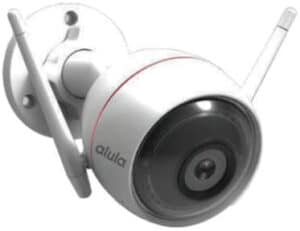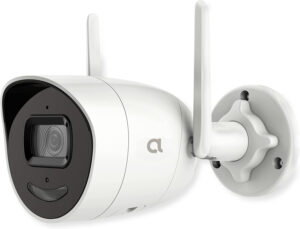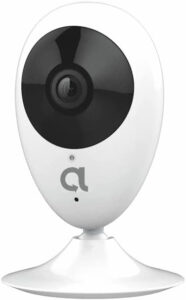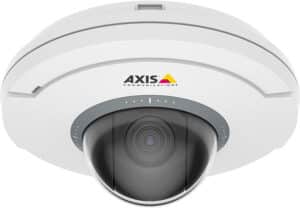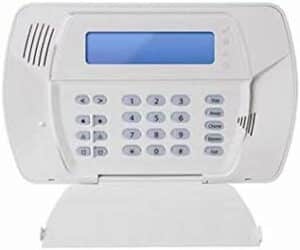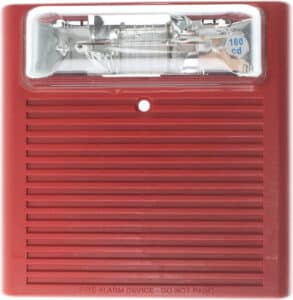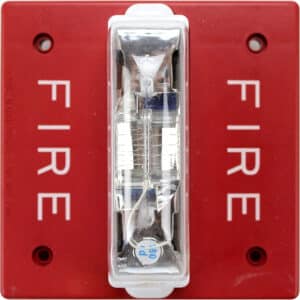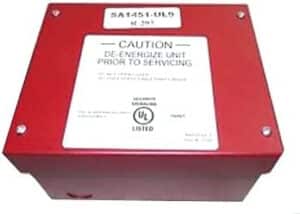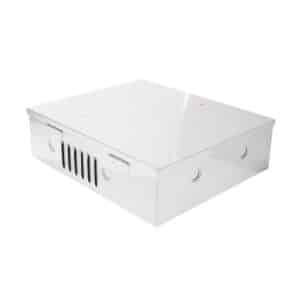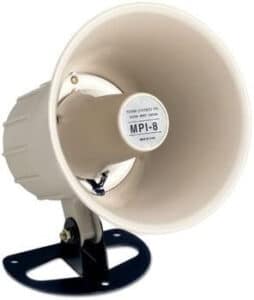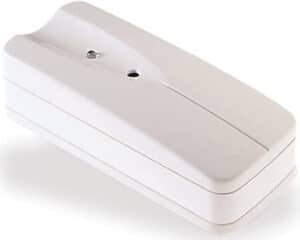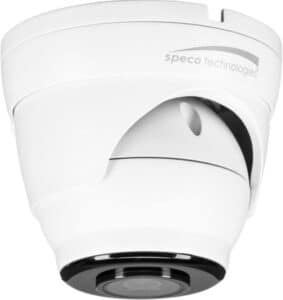How to Make Your Home More Secure with Simple Home Security Tips
Even with the best home security systems in place, there are still ways that burglars can break into your home. Even if you live in a very safe neighborhood, you can’t reduce your risk of burglary to zero. But don’t despair — your risk of burglary can be significantly reduced by using simple security measures.
Protecting your home from burglaries is sort of like trying to prevent a storm or avalanche. You can’t stop all of them, but you can reduce the risk that your home might be hit by a storm or avalanche.
In this blog post, you’ll discover easy-to-follow home security tips that will help you safeguard your home and keep intruders out. From equipping your home with the latest in home security technology to changing up your daily habits, you’ll learn how to make your home more secure without breaking the bank.
Let’s dive in and explore the best home security tips that you can implement today!
Table of Contents
Home Security Cameras: Overview of Home Security Options
Security cameras are a great way to make your home more secure. With the right camera system, you can monitor your property 24/7 and catch any suspicious activity before it becomes a problem.
Here’s an overview of home security options:
-
-
Wired Cameras
Wired cameras are connected to your home’s power supply and require professional installation. They offer high-resolution images and wide-angle views, and they don’t need to be recharged.
-
-
-
Wireless Cameras
Wireless cameras are battery-powered and can be installed anywhere. They’re more affordable than wired cameras, but their images may be grainier and their range may be limited.
-
-
-
Outdoor Cameras
Outdoor cameras are designed to withstand harsh weather conditions. They’re usually waterproof and have motion detection, night vision, and two-way audio features.
-
-
-
Indoor Cameras
Indoor cameras are used to monitor activity inside your home. They’re usually smaller than outdoor cameras and come with features like infrared and a wide-angle lens. These cameras are best for monitoring your indoor activities like in the living room, kitchen, or bathroom.
-
-
-
Smart Cameras
Smart cameras connect to your home’s Wi-Fi network and allow you to stream live video, control the camera from your smartphone, and receive notifications and alerts.
-
With the wide range of security cameras available, you can find the perfect option for your home. Whether you’re looking for a wired or wireless system, there’s a camera that will suit your needs.
How to Make Your Home More Secure with Simple Home Security Tips
Making your home more secure is a top priority for many homeowners. Here are some simple home security tips to help you keep your home and family safe:
-
-
Install a Security System: Invest in a quality security system that includes motion sensors, security cameras, and an alarm to alert you if an intruder is present.
-
-
-
Add Window Locks: Window locks are an easy and relatively inexpensive way to secure windows and prevent burglars from entering your home.
-
-
-
Use Smart Lighting: Smart lighting can provide an extra layer of security to your home by simulating occupancy when you’re away.
-
-
-
Secure Doors: Install deadbolt locks on all exterior doors and make sure all doors are locked when you’re away.
-
-
-
Secure Windows: Use window locks and keyed locks for windows that can be opened from the outside.
-
-
-
Utilize Outdoor Lighting: Motion-sensor outdoor lighting can deter burglars and alert you to any activity on your property.
-
-
-
Install Smart Lock: Smart locks can be linked to your security system and allow you to control access to your home remotely.
-
-
-
Be Smart About Social Media: Be mindful of your online presence and avoid posting your whereabouts or other personal information that could attract unwanted attention.
-
-
-
Keep Valuables Out of Sight: Keep valuable items like jewelry, electronics, and cash out of sight, as these are often the target of burglars.
-
-
-
Install an Alarm System: Alarm systems are one of the most effective ways to deter intruders and alert you if an intruder is present.
-
-
-
Keep Valuables Out of Sight: Make sure to keep valuables out of direct view of windows and doors.
-
-
-
Join a Neighborhood Watch Program: Joining a neighborhood watch program can help you stay up to date on local crime activity and be a part of a larger effort to deter burglars.
-
-
-
Check Your Home’s Exterior: Make sure your home’s exterior is well-lit and free of shrubs and trees that could provide cover for intruders.
-
-
-
Install Video Doorbells: Video doorbells are a great way to keep an eye on your front door and alert you if someone is at your door.
-
-
-
Set Timers for Lights: Install timers for your lights and other devices so that it appears someone is at home even when you’re away.
-
-
-
Unplug Electronics: Unplug any electronics that you don’t need while you’re away to avoid the risk of electrical fires.
-
-
-
Install Motion-Sensing Lights: Install motion-sensing lights around your home, especially around windows and doors, which can be triggered by an intruder and alert you to their presence.
-
By taking these simple steps, you can make your home more secure and give yourself peace of mind.
Professional Monitoring for Home Security System: Is It Right For You?
Monitoring your home for security is an important part of keeping it safe and secure. Professional monitoring services can be an effective way to provide peace of mind and additional protection.
Here are some things to consider when deciding if professional monitoring is right for you:
-
-
Cost
Professional monitoring typically requires a monthly fee, so the budget should be taken into account.
-
-
-
Monitoring Options
Most professional monitoring services offer various levels of service, such as video surveillance, motion sensors, and alarm systems.
-
-
-
Reputation
Research the company’s reputation, customer reviews, and reliability.
-
-
-
Contract
Read the contract carefully and make sure you understand the terms and conditions, including cancellation fees.
-
-
-
Location
Consider your location and what type of monitoring is available in your area.
-
Professional monitoring can be a great way to keep your home secure and provide added peace of mind. Take the time to weigh the pros and cons to decide if it’s the right choice for you.
Outdoor Cameras: The Basics of Home Security Camera Installations
Outdoor cameras are one of the most important components of a home security system. With the right setup, they can provide you with a comprehensive view of your property and alert you to any intruders.
Here are some basics of outdoor camera installations you should consider when looking to make your home more secure:
-
-
Camera Placement
Place your cameras in strategic locations to get optimal coverage of your property, such as near entryways, around the perimeter of your home, and in areas where people tend to gather.
-
-
-
Motion Detection
Motion-sensing cameras can detect movement and send an alert to your phone or another device. This can be especially useful when you’re away from home.
-
-
-
Night Vision:
Many outdoor cameras come equipped with night vision, allowing you to monitor your property even in low-light conditions.
-
-
-
Weatherproofing
Make sure your cameras are protected from the elements, such as wind, rain, and extreme temperatures.
-
-
-
Cloud Storage:
Cloud storage allows you to store recorded footage and access it from any device. This can be helpful if you need to review footage of an incident.
-
Wireless Home Security Cameras: What Are The Benefits?
Wireless security cameras can be a great way to make your home more secure.
Here are some of the benefits of installing wireless home security cameras:
-
-
Increased security: Wireless home security cameras allow you to monitor your home from anywhere, at any time. This gives you peace of mind that your home is secure no matter where you are.
-
-
-
Cost-effective: A wireless security camera is more affordable than traditional wired systems, making them a great option for those on a budget.
-
-
-
Easy installation: Wireless home security cameras are easy to install and don’t require any complicated wiring. This makes them a great option for DIYers.
-
-
-
Remote monitoring: With wireless home security cameras, you can monitor your home from anywhere with an internet connection. This means you can keep an eye on your home even when you’re away.
-
-
-
Motion detection: A wireless camera is equipped with motion detection technology, which can help alert you to any suspicious activity.
-
Overall, wireless security cameras can be a great way to make sure your home is secure. With their easy installation, cost-effectiveness, and ability to monitor your home remotely, they’re a great choice for anyone looking to make their home more secure.
Indoor Cameras: How To Choose The Right Security System
When it comes to choosing the right security system for your home, indoor cameras are an important component. Here are some key factors to keep in mind when choosing the right indoor cameras for your home security system:
-
-
Resolution: Look for a camera with a resolution of at least 720p, which will provide clear, detailed images.
-
-
-
Field of view: Opt for a wide-angle lens that covers a wide area of your home, so you can keep an eye on multiple rooms or entry points.
-
-
-
Night vision: A camera with infrared technology that can detect motion in low-light conditions is essential for 24-hour surveillance.
-
-
-
Audio: Look for a camera with two-way audio, so you can communicate with people in the home.
-
-
-
Storage: Choose a camera with cloud storage or local storage, so you can access video footage even if your camera is damaged or stolen.
-
-
-
Motion detection: Cameras with motion detection capabilities are key for reliable security monitoring.
-
-
-
Cost: Make sure to factor in the cost of the equipment, as well as any recurring fees for storage or other services.
-
Night Vision: The Benefits of Color Night Vision Cameras
When it comes to home security, one of the most important components is a color night vision camera. With the ability to record in full color even in low-light situations, these cameras can provide an extra layer of security for your home.
Here are some of the key benefits of color night vision cameras:
-
-
They provide much clearer images than traditional black-and-white cameras, making it easier to identify people and objects.
-
-
-
Color night vision cameras are capable of recording in low light and even complete darkness, making them ideal for monitoring areas such as hallways, stairways, and driveways.
-
-
-
They are equipped with infrared technology, allowing them to capture images in total darkness and at greater distances than standard cameras.
-
-
-
They provide a sense of security and peace of mind, knowing that any suspicious activities can be easily identified.
-
-
-
Color night vision cameras can also be used to monitor wildlife and other activities in your yard. This can help you keep an eye on the safety of your family and pets.
-
-
-
Finally, color night vision cameras are much more affordable than standard cameras, making them a great option for anyone looking for an affordable security solution.
-
Video Doorbells: What To Look For When Shopping For Ring Cameras
When shopping for Ring cameras, there are a few key features to look for to ensure you’re getting the best security for your home. Here are some features to consider when shopping for a video doorbell:
• Two-way audio: This feature allows you to communicate with anyone at your door from anywhere in the world, so you always know what’s going on at home.
- Motion detection: Motion sensors allow you to get notifications when someone is at your door, so you can be alerted if someone is trying to enter your home.
- HD video: High-definition video lets you clearly see who’s at your door on your phone, tablet, or laptop.
- Night vision: This feature allows you to see in the dark, so you’ll always have a clear view of who’s at your door.
- Easy installation: Many Ring doorbells are designed for quick and easy installation, so you can get your home security system up and running in no time.
The more features your Ring camera has, the more secure your home will be. Be sure to compare different models and look for the features that best fit your needs.
Local Storage vs. Cloud Storage: What Are The Differences?
When it comes to home security, understanding the differences between local storage and cloud storage is important. Local storage is the traditional method of storing data on physical media such as hard disks, USB drives, or SD cards, while cloud storage is the process of storing data on remote servers.
Here are a few key differences between the two:
-
-
Local Storage: Data is stored on physical media. It is generally more secure since it is stored on the user’s own hardware and not in the cloud, but it can be vulnerable to physical damage or theft.
-
-
-
Cloud Storage: Data is stored in the cloud and accessible from anywhere with an internet connection. It is more convenient and often more cost-effective than local storage, but it also carries the risk of cybersecurity threats.
-
When choosing between local storage and cloud storage, consider the type of data you are storing and the security measures you are comfortable with. If you are storing sensitive data that requires a high level of security, local storage may be the best option. However, if you need to access data from multiple locations, cloud storage may be the better solution.
Wiring Options for Indoor and Outdoor Cameras
If you’re interested in installing indoor or outdoor cameras at your residence, the first thing you’ll need to do is determine how you want to power them. Unless you live in a remote area, you likely already have some options for powering them.
It’s important to keep in mind that there’s a big difference in indoor versus outdoor camera requirements since outdoor cameras must operate under harsher conditions. Here are some of the most common options for wiring indoor or outdoor cameras:
-
-
Power over Ethernet: This is a common option for both indoor and outdoor cameras and allows for power and data to be sent through one cable. This eliminates the need for a separate power line running from the camera to the power source.
-
-
-
Battery Power: This is a great option for those who have no easy way to access power through a power outlet or if you don’t want to install wiring.
-
-
-
Solar Power: This is a great option for those who want to install cameras in remote areas where there is no access to power. Solar panels can be used to capture the sun’s energy and store it in batteries which can then be used to power the camera.
-
-
-
Hardwired: This is a great option for those who want to ensure a reliable and secure power source for their camera. Hardwiring requires the installation of wiring to the power source, so it can
-
-
-
Wireless: This is a great option for those who want to install cameras in areas where running wires is not feasible or desirable. Wireless cameras use radio frequency signals to transmit data from the camera to the receiver.
-
Video Quality: Resolution and Frames per Second
Video quality is an often overlooked aspect of home security. To ensure that you have the best video quality possible, it’s important to consider both resolution and frames per second (FPS). The resolution affects the clarity of the video, while frames per second affect the smoothness of the video.
A higher resolution will give you more detail, while higher frames per second will give you smoother motion. In general, a resolution of 1080p or higher and a frame per second of 30 or higher is recommended for optimal video quality.
When looking for home security to purchase, make sure to check the resolution and FPS ratings to ensure that you are getting the best video quality. Here are the benefits
of having a good resolution and FPS for home security:
-
-
More Detail: A higher resolution will give you more detail in the video, which can be useful when trying to identify objects or people.
-
-
-
Smooth Motion: Higher frames per second will give you smoother motion in the video, which can make it easier to determine what is happening in the video.
-
-
-
Better Storage: A higher resolution and frames per second will require more storage, but it will be worth it as you will have better video quality and more detail.
-
Overall, having a higher resolution and frames per second is essential when looking for home security. A resolution of 1080p or higher and a frame per second of 30 or higher is recommended. This will ensure that you get the best video quality and detail to help you identify people or objects in the video.
Multiple Cameras: Strategies for Optimal Security
Having multiple cameras in your home is one of the most effective ways to ensure security. Here are a few strategies for optimal security with multiple cameras:
-
-
Place cameras in visible areas: Placing cameras in visible areas discourages potential intruders. This will make them second-guess their plans to break into your home.
-
-
-
Utilize different types of cameras: Incorporate both indoor and outdoor cameras in order to get a comprehensive view of your property.
-
-
-
Place cameras near the entrances: Placing cameras near the entrances of your home gives you an extra layer of security. You can monitor who is entering and leaving your home.
-
-
-
Position cameras at different angles: Placing cameras at different angles gives you a better view of your property. This allows you to see any suspicious activity in your home.
-
-
-
Monitor people or objects: You can use cameras to monitor people or objects in your home. This will allow you to keep track of any suspicious activity or objects in your home.
-
-
-
Utilize motion sensors: Utilizing motion sensors with your cameras can be an added layer of security. Motion sensors will alert you when there is movement in the vicinity of the camera.
-
-
-
Use a spotlight: Placing a spotlight in the vicinity of your camera can be a great deterrent.
-
Selecting the Right Security Company to Make Your Home More Secure
Selecting the right security company can be daunting. Here are a few tips to consider when making your choice:
-
-
Do Your Research:
Do some research online to find out what other customers think about the various security companies. Check out reviews and ratings to get a better understanding of their services.
-
-
-
Their Services:
Make sure the security company you choose offers the services you need. Consider whether you need home automation, CCTV, alarm monitoring, or any other services.
-
-
-
The Cost:
Compare the costs of different security companies to get the best deal. Also, make sure to factor in any hidden costs or fees.
-
-
-
Company Reputation:
Look for a security company that has a good reputation in the industry. Ask for references from previous customers and check out their website.
-
-
-
Experience:
Choose a security company with a good track record and experience in the field. Make sure they have the right certifications and qualifications.
-
-
-
Security:
Ensure that the security company you choose has the latest security technologies and processes to protect your property. They should also be compliant with any relevant laws and regulations.
-
Conclusion
As you have just learned, there are many simple and affordable ways to make your home more secure. From installing a home security system to using smart locks and motion-activated lighting, you can take steps to protect your family and your belongings. However, if you’re looking for a more comprehensive solution, consider investing in Xcessory Zone’s DIY home security products.
With Xcessory Zone’s reliable security solutions, you can rest assured that your home is safe and secure. So don’t wait another day – start protecting your home with Xcessory Zone’s DIY home security products today!
FAQs
How do I get started in home security?
Getting started in home security can be overwhelming. To make the process easier, begin by understanding the security camera features and capabilities. An indoor camera is the best choice for most homes, as it allows you to monitor your home’s interior. When researching security cameras, pay attention to features like video storage and night vision.
These features provide an extra layer of security and safety for your home. Additionally, consider adding other security measures like motion detectors or doorbell cameras. With the right combination of security cameras and other products, you can ensure your home is safe and secure.
What should I consider for home security cameras?
When considering home security cameras, one of the most important aspects to consider is the type of security camera you want to purchase. There are many different types of security cameras on the market, from most basic models to smart security cameras that can be integrated into a home automation system.
Outdoor security cameras are also available for monitoring the exterior of your home. Additionally, you should consider the security camera prices, as this can affect the features and capabilities of the system. Ultimately, choosing the right home security camera for your needs will depend on the level of security you need, the features you require, and your budget.
Are wired or wireless security cameras better?
It depends on your specific needs, but most security cameras are either wired or wireless. Wired security cameras are typically more reliable and secure, but they require more installation work and can be more expensive.
Wireless cameras, on the other hand, are easier to install and more affordable, but they can be prone to interference and hacking. The best choice for you will depend on your home security needs. For example, if you are looking for a smart security camera with voice control, you may want to consider a camera that works with Google Assistant. Ultimately, the most secure system will depend on your specific needs.
Meet Our Partners!




